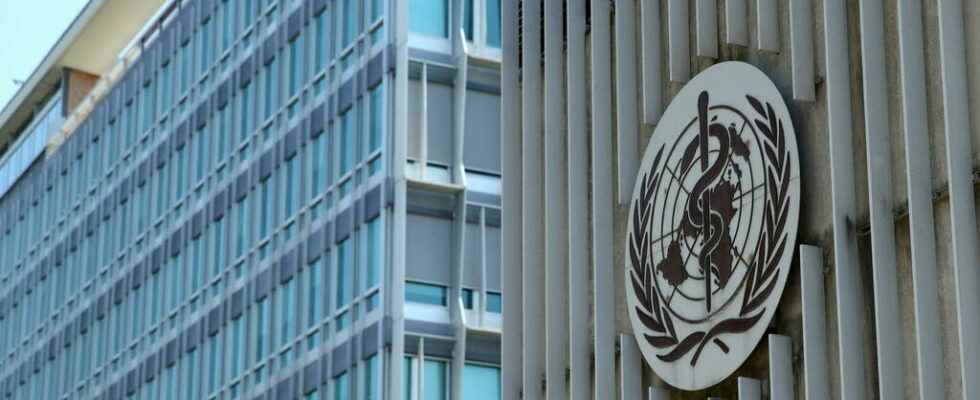Fight against Covid-19, and already prevent the next health crisis. Important discussions are taking place in Geneva. The World Health Organization meets in special session to create a treaty on pandemics. The WHO has also protested against the restrictions affecting southern Africa after its revelations on the Omicron variant.
This is the second time in its history that the WHO has met in a special session, explains our correspondent in Geneva, Jeremy Lanche. This comes in the middle of a wave of coronavirus contaminations in Europe, and only a few days after the revelation, by South African scientists, of the existence of the Omicron variant.
►Read also: “No reason to panic” in the face of the Omicron variant, according to Joe Biden
While more and more States are barricading themselves in the face of this new threat, the WHO calls on the contrary to leave the borders open, in particular with South Africa. For the world organization, these measures are counterproductive.
If a country declares the emergence of a new variant on its soil, and that in response all the others put it aside, the risk in the future is that very few play the game of transparency. . Moreover, these restrictions have not prevented the B1.1.529 variant from spreading, since it has already been identified on several continents of the world.
Faced with this threat of which we can still measure precisely neither the contagiousness nor the pathogenicity, for lack of perspective, the WHO pleads rather for a re-examination of international agreements moving towards more cooperation. This is precisely the meaning of the session.
►Read also: Give scientists time to analyze the Omicron phenomenon
First, there is the issue of access to vaccines: if the sharing is not fair, with protected countries on one side and states where the virus is circulating on the other, this first poses an ethical problem, and this is taking the risk of seeing new variants emerge. The WHO has been warning about this for months. Omicron shows that the finding was correct, notes Simon roze, in charge of scientific questions at RFI.
On its own, the Omicron variant is therefore a plea for the creation of a treaty on pandemics, believes Tedros Ghebreyesus. The boss of the WHO takes this as proof with this multiplication of unilateral border closures with southern Africa.
” We must thank South Africa and Botswana for sequencing and identifying the variant, not penalizing them, he said. And Omicron demonstrates why we need a pandemic treaty. Because the current system does not encourage states to alert others to the threats that will inevitably come to them. “
This is a historic moment for countries to agree on a common, binding approach to a common threat coming from our relationship with nature. It won’t solve every problem, but it will provide the framework to foster greater cooperation & strengthening ? health security #WHASpecial pic.twitter.com/YjatVOE5lo
– Tedros Adhanom Ghebreyesus (@DrTedros) November 29, 2021
A treaty will not prevent national selfishness. But for its supporters, it would have the merit of better coordinating the response and the sharing of information in the event of the emergence of a new infectious agent, with the automatic dispatch of experts in the field.
For the moment, we are still far from it. Because the consensus that seems to emerge in Geneva in recent hours says nothing about the content of the future treaty. The negotiations could last for months or even years. With a possible entry into force which will not be scheduled before 2024.
►In the spotlight: Wind of global panic over the emergence of the new Omicron variant
